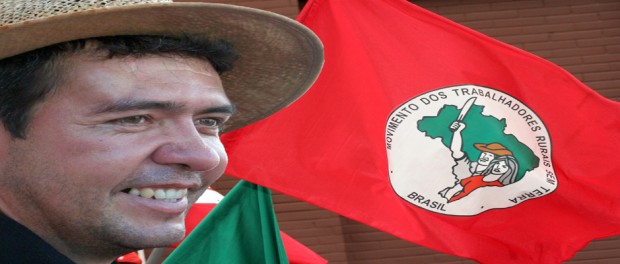Agribusiness Syngenta found responsible for armed attack on encamped rural workers in Brazil
Terra de Direitos celebrated a major legal victory this past week when the Civil Court of Cascavel ruled that the agribusiness, Syngenta, is responsible for the death of a landless activist who was murdered by private armed militia on company property. The sentence mandated the company to pay compensation to the family of the victim, Valmir Mota de Oliveira (affectionately known as “Keno” within Brazil’s landless movement) for moral and material damages. The case was taken to court in 2010, by Terra de Direitos on behalf of the Movimento Sem Terra (MST) of Brazil.

The sentence has been applauded by social movements and human rights organizations in Brazil and around the world as an emblematic case that holds a major company responsible for human rights violations. According to the lead lawyer on the case, Fernando Prioste of Terra de Direitos, “Transnational companies currently have considerable freedom to operate on a transnational basis, but there are no national or international norms or mechanisms sufficient to oblige companies to respect human rights or to hold them accountable for cases of human rights violations. In this case, Syngenta having been found responsible is an exception to the rule.”
In a widely celebrated move, the judge found that “there is no doubt that, in truth, it was a massacre disguised as repossession of property,” contrary to the company’s claims that the attack that took place in 2007 was the result of a confrontation between militiamen and members of the country’s landless movement. The company had also attempted to obscure its responsibility for the murder, by claiming that the attack was not made by the company it hired, but rather by militia acting on the orders of landowners.
In his sentence, the judge recognized that the “bad choice in outsourcing security services, as well as the indirect funding of illicit activities, is a factor that generates civil liability”. Moreover, the judge vehemently condemned the attack by stating that “however reproachable and illegitimate the occupation of the property may have been, nothing justifies taking the law into one’s own hands, imposing the death penalty on the occupants, rather the legal means for resolving the conflict should have been sought since, after all, the legal system considers the arbitrary exercising of one’s own judgements to be a crime”. As such the court sentence not only reaffirms the ideological nature of the militia’s action, but also links Syngenta with that action.
The court sentence is not definitive. Syngenta, may appeal to the Paraná State Court of Appeals; however, Terra de Direitos is confident that the sentence will be upheld. “There is strong evidence against the company,” notes Prioste. “If Syngenta were to be absolved this would be tantamount to the justice system acquiescing to massacres like the one that occurred in this case”.
Read the full article in English here and in Portuguese here.
